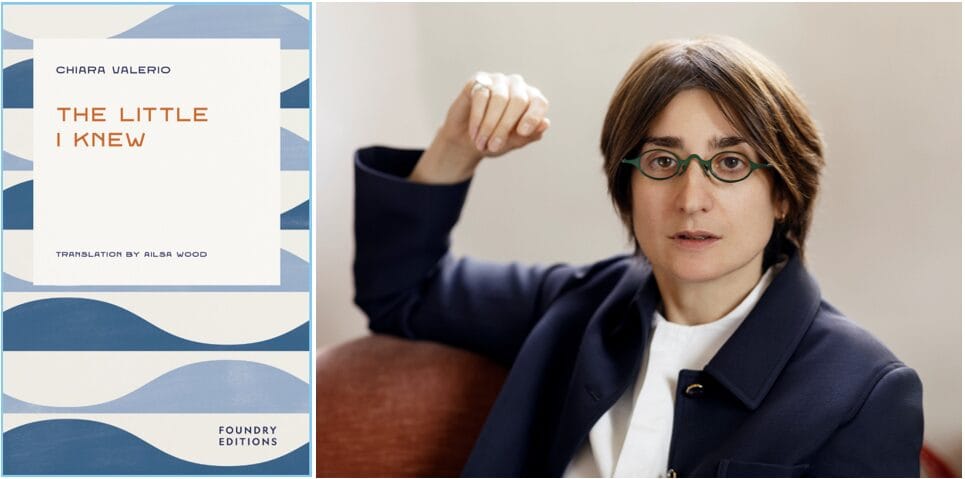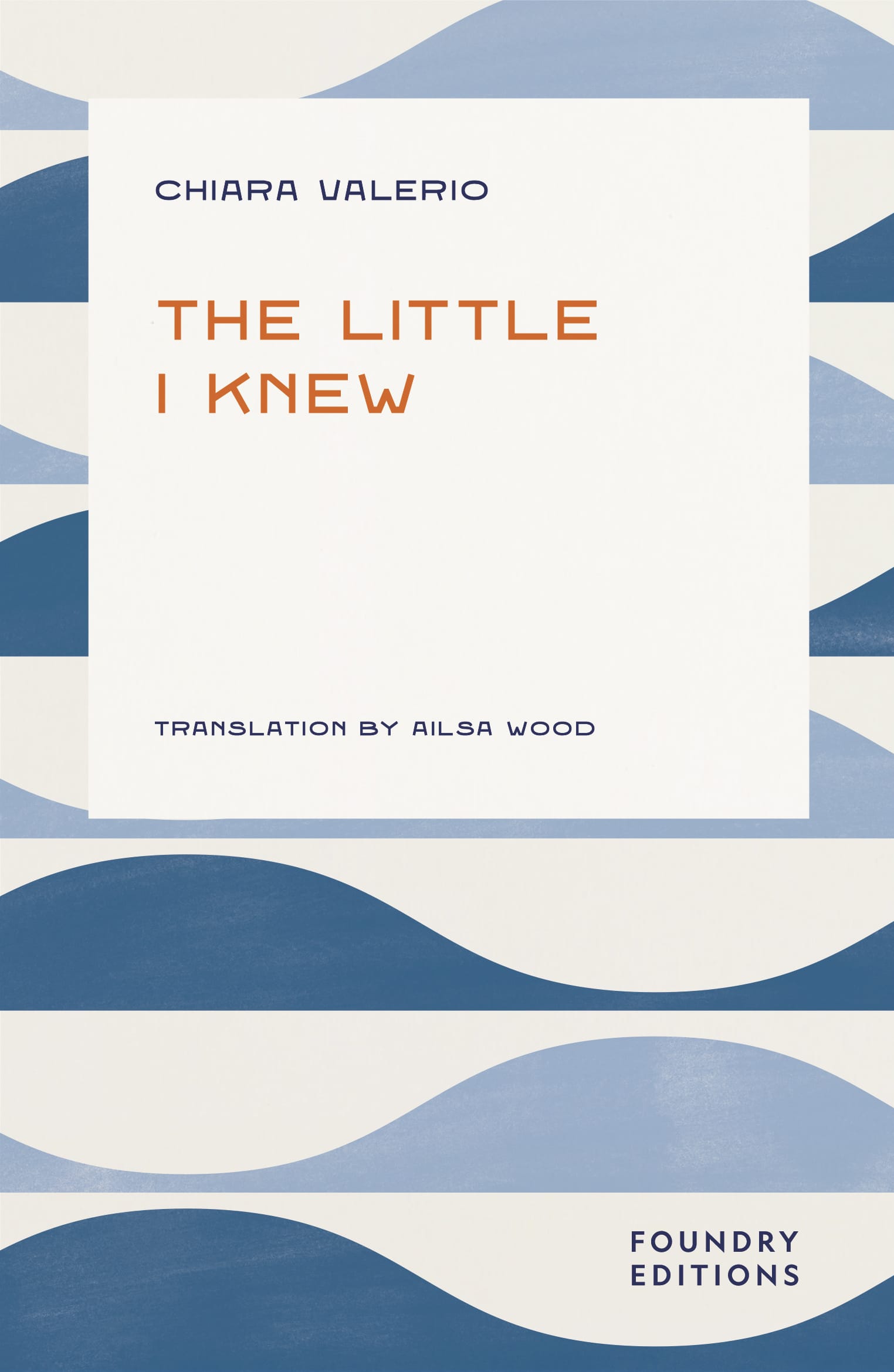Review: The Little I Knew by Chiara Valerio, translated by Ailsa Wood
A meditation on small-town life, female relationships, and the secrets that pulse beneath seemingly placid surfaces. This novel unwinds with careful intensity, its narrative architecture mirroring the slow, sun-drenched rhythms of southern Italian coastal existence.

Chiara Valerio's The Little I Knew arrives in English through Ailsa Wood's splendid translation as a sophisticated meditation on small-town life, female relationships, and the secrets that pulse beneath seemingly placid surfaces. This is a novel that unwinds with careful intensity, its narrative architecture mirroring the slow, sun-drenched rhythms of southern Italian coastal existence. Novelist, editor, critic, cultural commentator and mathematician Chiara Valerio is a sensation in Italy and The Little I Knew is a huge bestseller.
Reading Valerio feels like surrendering to a hot afternoon on a balcony overlooking Scauri—that specific temporal suspension where warm breezes carry fragments of street gossip upward, where sunlight catches on lemon tree leaves and the fruit's bright yellow skin, where time itself seems to thicken and slow. It's atmospheric and beguiling, yet persistently unsettling, combining noir mystery's skeletal structure with profound psychological excavation.
At the novel's heart lies Vittoria, the town's chemist and herbalist—one of those essential women everyone knows, or thinks they know. When she's found dead in her bath, apparently drowned, local lawyer Lea begins investigating the woman who'd lived in Scauri for three decades yet remained fundamentally unknowable. Vittoria was the person everyone turned to, but each relationship revealed only a facet, a carefully presented shard of self. Lea's investigation becomes an act of tessellation, piecing together these fragments while uncovering the secrets they both reveal and conceal.
What emerges is a narrative deeply attuned to those delicate bonds and quotidian connections that constitute small-town life. Valerio explores how understanding remains perpetually shifting and incomplete, how we construct knowledge of others through accumulated silences and oblique revelations. The novel traces how past reverberations overtake the present, how everything—passions, emotions, relationships—can transform irrevocably once certain truths surface.

Wood's translation captures Valerio's distinctive register: the measured pace, the attention to domestic detail, the way psychological acuity accumulates through seemingly casual observation. Valerio, herself a translator of Virginia Woolf, channels something of Mrs Dalloway and To the Lighthouse's introspective intensity, while her razor-sharp character work evokes Elena Ferrante's forensic approach to female interiority. There's Ruth Rendell here too—that socially aware suspense, the sense that individual mysteries always connect to broader questions of power, gender, and community structures.
This is literature that operates through accumulation rather than revelation, that understands the erotic and emotional complexity of female friendships, and that honours the Italian tradition of women's writing while speaking across linguistic boundaries. The Little I Knew marks Valerio as an essential voice in contemporary European fiction—a writer attuned to what we conceal, what we reveal, and the ever-shifting horizons of human connection.
Out now £14:99, more info or order the book from the publishers website here.
Support independent LGBTQ+ journalism
Scene was founded in Brighton in 1993, at a time when news stories about Pride protests were considered radical. Since then, Scene has remained proudly independent, building a platform for queer voices. Every subscription helps us to report on the stories that matter to LGBTQ+ people across the UK and beyond.
Your support funds our journalists and contributes to Pride Community Foundation’s grant-making and policy work.
Subscribe today




Comments ()